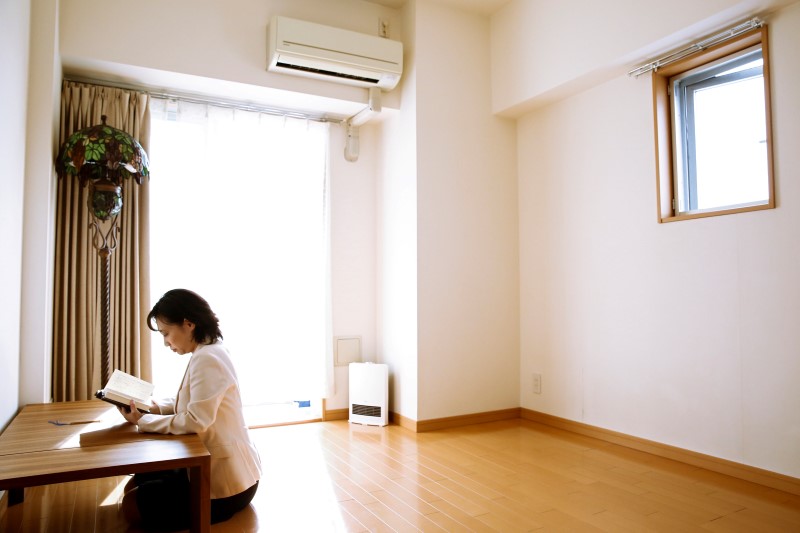By Megumi Lim
TOKYO (Reuters) – Fumio Sasaki’s one-room Tokyo apartment is so stark friends liken it to an interrogation room. He owns three shirts, four pairs of trousers, four pairs of socks and a meagre scattering of various other items.
Money isn’t the issue. The 36-year-old editor has made a conscious lifestyle choice, joining a growing number of Japanese deciding that less is more.
Influenced by the spare aesthetic of Japan’s traditional Zen Buddhism, these minimalists buck the norm in a fervently consumerist society by dramatically paring back their possessions.
Sasaki, once a passionate collector of books, CDs and DVDs, became tired of keeping up with trends two years ago.
“I kept thinking about what I did not own, what was missing,” he said.
He spent the next year selling possessions or giving them to friends.
“Spending less time on cleaning or shopping means I have more time to spend with friends, go out, or travel on my days off. I have become a lot more active,” he said.
Others welcome the chance to own only things they truly like – a philosophy also applied by Mari Kondo, a consultant whose “KonMari” organizational methods have swept the United States.
“It’s not that I had more things than the average person, but that didn’t mean that I valued or liked everything I owned,” said Katsuya Toyoda, an online publication editor who has only one table and one futon in his 22-square-metre apartment.
“I became a minimalist so I could let things I truly liked surface in my life.”
Inspiration for Japan’s minimalists came from the United States, where early adherents included Steve Jobs.
Definitions vary, because the goal is not just decluttering but re-evaluating what possession mean, to gain something else – in Sasaki’s case, time to travel.
Just how many there are is unclear, but Sasaki and others believe there are thousands of hard-core minimalists, with possibly thousands more interested.
Some say minimalism is actually not foreign but a natural outgrowth of Zen Buddhism and its stripped-down world view.
“In the west, making a space complete means placing something there,” said Naoki Numahata, 41, a freelance writer.
“But with tea ceremonies, or Zen, things are left incomplete on purpose to let the person’s imagination make that space complete.”
Minimalists also argue that having fewer possessions is eminently practical in Japan, which is regularly shaken by earthquakes.
In 2011, a 9.0 magnitude quake and tsunami killed nearly 20,000 people and led to many re-evaluating possessions, Sasaki said.
“Thirty to 50 percent of earthquake injuries occur through falling objects,” he said, gesturing around his apartment.
“But in this room, you don’t have that concern.”
(Additional reporting by Thomas Peter; Writing by Elaine Lies; Editing by Robert Birsel)


